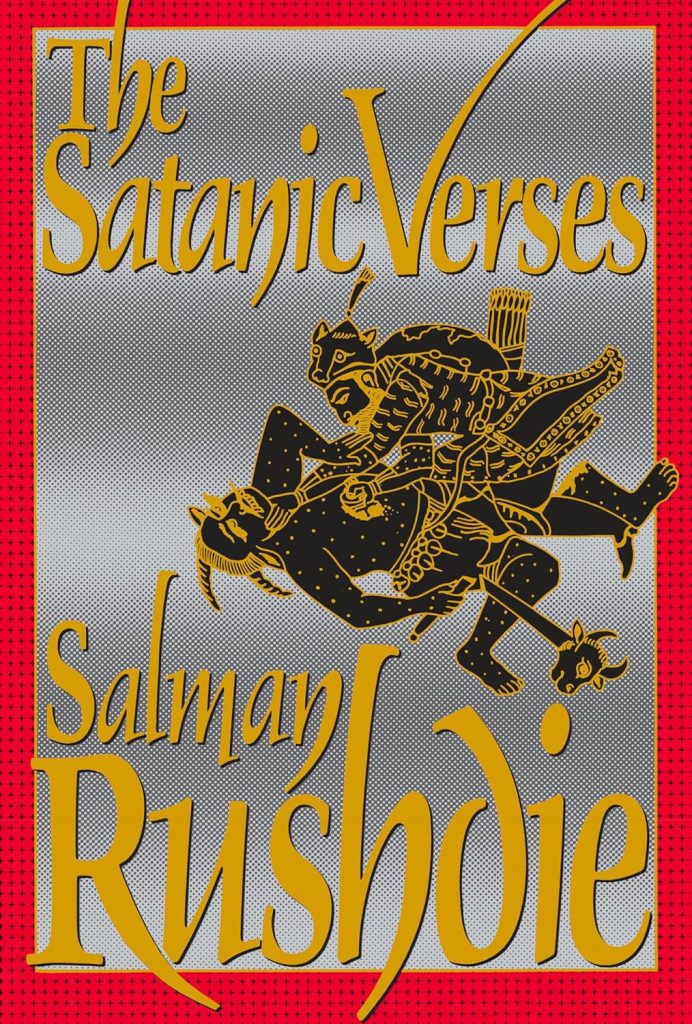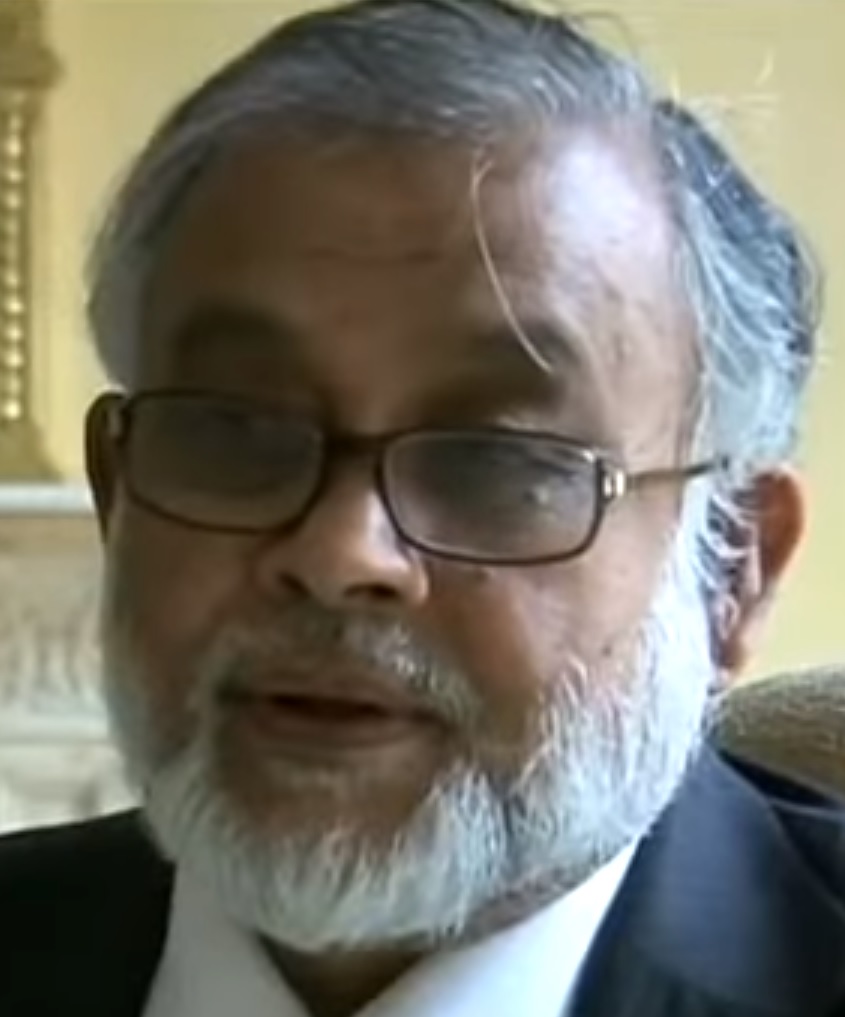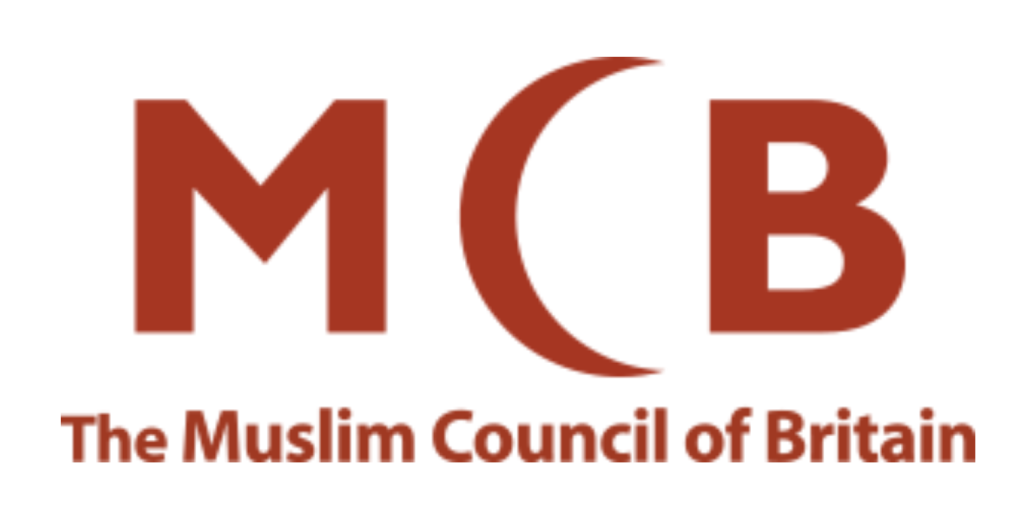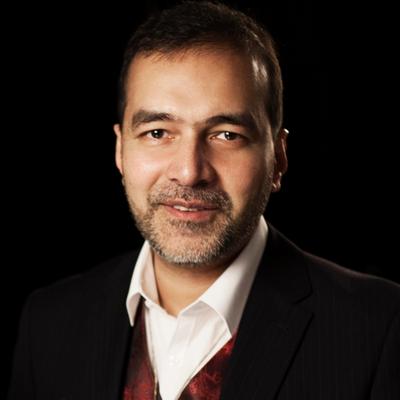For an imam without a minbar (pulpit) or even a congregation to preach to, Muhammad Al-Hussaini wields real influence in the United Kingdom. After years of lobbying public officials and reporters about the failings of the Inter Faith Network for the United Kingdom (IFN), an interfaith charity headquartered in London with close links to Islamist and extremist Hindu nationalist groups, the British government finally took notice and stopped funding the organization, which UK taxpayers had been funding to the tune of £150,000 ($190,000) a year. The loss of funding, which amounted to approximately 50 percent of its budget, forced the organization, which — despite its small budget — played an outsized role in legitimizing Islamism in the UK, to close.
The Inter Faith Network had a power-seeking, taxpayer money-seeking agenda.
Muhammad Al-Hussaini
The IFN’s refusal to condemn the October 7 massacre, Al-Hussaini explains, focused attention on the role played by the Muslim Council of Britain (MCB), an Islamist organization, in IFN’s governance and leadership structure and sealed the organization’s fate. The British government is currently drafting urgent legislation to designate Islamist and other groups, including the MCB, as extremist, and end taxpayer funding of them.
It was a career milestone for Al-Hussaini, who, in addition to serving as a senior lecturer in Islamic Studies at the Oxford Centre for Religion and Public Life and a journalist at The Church of England newspaper, is also a well-regarded fiddle player and singer of Irish folk songs. He relishes his status as “that weird fellow who just sings his Irish songs” because it keeps him off the radar of violent extremists who might take offense at his activism.
“It’s my eccentricity,” he says. “It offers me some security because people don’t take me seriously. ‘Oh, he plays Irish music. Leave him alone, he’s no threat to anybody.’”
Along these lines, Al-Hussaini is quick to disparage his own influence on recent events. “I speak for nobody,” he says. “I hold my academic qualifications and scholarly credentials, and I speak solely out of those credentials. But myself as some public personality? That I don’t want to be.”
Focus on Western Islamism (FWI) spoke with Al-Hussaini about the IFN, its ties to Islamist organizations, problems with interfaith dialogue in general, and the process of reform in Islam. The interview has been edited, with links added for context.
FWI: The MCB recently issued a statement condemning the British government’s decision to defund the Inter Faith Network for the United Kingdom. Tell me about the MCB and why its involvement with the IFN is a problem.

Al-Hussaini: The Muslim Council of Britain operates as a daughter organization of Jamaat-e-Islami, the Indo-Pakistani analogue to the Muslim Brotherhood. The Salman Rushdie affair in England — with its effigy burnings and other disturbances – played a huge role in MCB’s founding. The story — which may be mythological — is that various Muslim leaders — angry Muslim men — went to see the home secretary, the UK equivalent of an interior minister, to complain about Rushdie’s book, The Satanic Verses. The home secretary reportedly told his visitors, “Look, I can’t speak to you all at once. Who’s in charge?” After a dozen hands went up, he reportedly told his visitors, “Look, go away, organize yourselves, and then come and talk to me.” Several years later, the MCB was established.
Previous umbrella groups such as the Union of Muslim Organizations (UMO) had been non-starters, but the MCB got off the ground because it had overseas support. One of the key ideological and policymaking member bodies of the MCB was an outfit called the Islamic Foundation, which is a local branch in the UK of Jamaat-e-Islami, a South Asian political Islamic movement that mirrors the Muslim Brotherhood in the Middle East/North Africa region. It has been involved in various truly unsavory incidents such as during the Bangladesh War of Liberation in 1971, when its cadres perpetrated mass killings. Given its nature, the MCB’s involvement with the IFN is a problem.
FWI: You have been critical of the “interfaith industry.”
Al-Hussaini: I support local, grassroots interaction between people of different faiths, but have a problem with the “Interfaith Industry” — a form of monetized public relations between religious politicians. Leaders of minority religions like the Unification Church, the Church of Scientology, the Latter-Day Saints, and similar groups use the interfaith industry to obtain legitimacy. Leaders of these movements benefit from appearing alongside bishops and clerics of mainline world religions.
Liberal Protestant denominations – the Church of England, for example – which are in terminal decline across Britain and Europe, also engage in this process. Various Anglican bishops and clergy jump upon the latest bandwagon issues such as climate change, Occupy Wall Street, refugees, and migration issues to “virtue signal.” They do it partly out of genuine conviction, but also to acquire relevance in the public sphere, given their empty pews and congregations of two old ladies and a dog. “Interfaith” is one of those relevancy-pursuit issues. Of course, liberal pastors see dialogue as part of their ministry, but a degree of self-interest and self-promotion permeates the interfaith industry.
Also, some leaders seek to clean up their tarnished reputations by doing motherhood-and-apple-pie peacemaking work. From disgraced politicians to celebrities with skeletons in the cupboard, interfaith work for such figures serves as a powerful PR tool.
A number of the church and other religious leaders involved in interfaith work in the UK have a past with alleged sexual abuse or judicially proven sexual abuse. Interfaith dialogue, like other difficult-to-fault activities, enables religious predators and their enablers to wash out the corruption and come up smelling of roses. I call it “reputation laundering.”
Islamic organizations that previously objected to inter-religious engagement, particularly with Christians and Jews, engage in the same process. Previously, Islamic leaders portrayed interfaith dialogue as a liberal, religiously syncretistic activity, arguing that “They’re missionaries out to convert us.” Islamic jurists cited traditional shari‘a edicts discouraging mixing with people of other religions, and highlighted the risk of being “contaminated” by their influence and behaviors.
Eventually, political Islamic leaders recognized the power of the interfaith industry as a tool for reputation laundering. After this light-bulb realization, powerful Muslim actors embraced the interfaith industry on a global scale.
FWI: Really?
Al-Hussaini: Yes, I was walking down the street in 2008 when I received a phone call from the Saudi Embassy in London inviting me to an international conference for top Islamic scholars on interfaith to be hosted by the king himself, Abdullah bin Abdulaziz Al Saud.
Talking out of both sides of your mouth became part of the grammar and syntax of these corrupted, politicized forms of dialogue.
Muhammad Al-Hussaini
The Saudis invited a bunch of scholars to a lavish conference at the king’s palace in Mecca to consider and sanction the legality in shari‘a of interfaith dialogue with Christians and Jews. The Saudis were responding to U.S. demands to clean up its sordid image on extremism and human rights abuses. Geopolitical machinations played into the realization on the Islamic side that interfaith dialogue is actually a really useful public relations tool.
The Saudis broadcast the event round the clock, showing viewers a glittering rollcall of the senior celebrities of the Islamic world. A coterie that included Yusuf Al-Qaradawi and Muhammad Ahmad Hussein, the mufti of Jerusalem, objected, declaring “We will never speak to the Jews, ever.”
True to the Saudi manner of doing business, the regime put us up at in lavish surroundings at absurd expense. Guests endured nighttime knocks on their hotel room doors from people delivering gifts like designer watches with the unsaid expectation that delegates would compliantly sign onto various declarations drafted for us to sanction. The hostility to engagement with Jews and Israel remained, but with some backroom arm twisting, they eventually got the declarations over the line.
The Gulf States and other Muslim leaders have organized numerous interfaith projects in the years since. Anyone with two brain cells to rub together should recognize that oppressive and despotic regimes with horrendous human rights abuses use these events to launder their public image. They do to Christian interfaith delegates what Saudi Arabia did to us as Muslim scholars – wining and dining us into affirming bland public statements about “togetherness” and “tolerance.”
The King Abdullah bin Abdulaziz International Centre for Interreligious and Intercultural Dialogue (KAICIID) pursues this agenda. Established far outside Saudi borders in Vienna, later moving to Lisbon, it promotes interfaith unity, religious freedom, gender — all of which are completely illegal in Saudi Arabia.
FWI: And people go along with it?
Al-Hussaini: Among Christian and Jewish interfaithers you do have the self-serving, the unscrupulous, and the “useful idiots,” from British church leaders to American rabbis, who have signed up to the KAICIID model and have held senior positions within the institution. The Archbishop of Canterbury has consistently sent his most senior inter-religious advisor to sit on the board. KAICIID has since come under criticism, but in its heyday, it served as an example of everything wrong with the interfaith industry. Established by an Islamic dictatorship with a horrific record of domestic human rights abuses, KAICID hypocritically launders [the regime’s] image in Europe with the active complicity of Western Christian and Jewish leaders.
Talking out of both sides of your mouth became part of the grammar and syntax of these corrupted, politicized forms of dialogue. The Inter Faith Network pioneered this hypocrisy in the UK. As a second-generation British citizen, I claim some national pride in England creating and globally exporting this two-faced model of interreligious dialogue (laughs). The UK has been a pioneer in interfaith dialogue with the IFN serving as one of the premier institutions in this process. At a time when more conservative Christian churches were not interested in interfaith dialogue, the liberal Church of England hierarchy was right at the forefront in building dialogical relationships with other religions, particularly the Islamic, as well as with domestic Muslim communities.
FWI: How did IFN get started?
Al-Hussaini: On a domestic level, it was founded in 1987.
At one level, the UK government wanted to engage with and police the activities of religion in the UK. The Muslim Council of Britain, which played a crucial role in shaping IFN’s final structure and form.
Hence, one of the strongest beefs that I have with the IFN, as Sam Westrop set out in his excellent report “The Interfaith Industry,” is that it helped legitimize and impose wholly unrepresentative Muslim leaders — who quite often have links overseas to highly problematic extremist organizations — upon the Muslim community in Britain.

For example, Chowdhury Mueen-Uddin, eventually convicted for genocide on account of his role in the 1971 Bangladesh War of Liberation as one of the leaders of the Islamist death squads during that brief and bloody war, benefitted from his involvement with the IFN. He was a most prominent interfaith leader across government-facing religious bodies and heading up multifaith hospital chaplaincy.
For a while, the MCB served as the go-to Muslim leadership organization for the state. A lot of us who complained about the MCB endured bullying and harassment – with threatening phone calls to our families – when we started to question the nature of this organization. Polling data indicates that that a very small percentage of British Muslims recognize the MCB as speaking for them.
FWI: The MCB used the IFN as a source of legitimacy?
Al-Hussaini: Exactly. IFN officers shouted me down for complaining about this issue at their annual general meetings. The Inter Faith Network had a power-seeking, taxpayer money-seeking agenda. IFN didn’t serve as a network, but an empire run by a little coterie, a cabal of people there from the outset. Unelected, self-appointed “representatives” of different religions ran the organization.
Nevertheless, we have the spectacle of the MCB deputy secretary general shaking hands with the prime minister, having tea with the queen, and pursuing interfaith photo opportunities with archbishops and rabbis. But in 2009 he signs the Istanbul Declaration in support of military action by Hamas. They’re talking peace while preparing for war, the kind of interfaith discourse the Muslims learnt from the English! (Laughs).
The IFN would not listen, year after year, to my protests that it could not be an organization of integrity and trust while having in its membership and leadership Islamist groups like the Islamic Foundation and the MCB.
FWI: Does interfaith dialogue have any legitimacy?
Al-Hussaini: After the Shoah and the terrible Nazi atrocities, Jewish and Christian leaders created the Council of Christians and Jews to combat antisemitism and to engage the realities of anti-Jewish sentiment in Christian churches. Priceless work has been done in that arena over the decades. But we cannot allow people who critique problematic interfaith projects to be bullied, harassed, persecuted, lose their jobs, and all the terrible things that have happened to my colleagues – and indeed myself – when we’ve spoken out about the abuse of interreligious dialogue as a public relations tool by people who have absolutely no interest in interfaith dialogue and discussion at all.
The heads of the MCB, the Islamic Foundation, Saudi Arabia, or Oman have no interest in Zen Buddhism or its theological relations to Islam. Such politicians speak blandly, superficially, and inoffensively to acquire political leverage and access to both political and material influence.
FWI: What prompted the U.K. government to finally move against the IFN?

Al-Hussaini: Sam Westrop and I sent the “Interfaith Industry” report to the government officials and journalists involved. We were also very lucky with The Sunday Telegraph, whose reporters paid close attention to the MCB. For years before, both myself and my rabbinic military chaplain friends had been concerned that that MCB was the Ministry of Defence’s endorsing body for the appointment of Muslim chaplains to the British armed forces. The MCB served as the Muslim gatekeeper for appointment to a highly security-sensitive position in the forces.
The MCB’s arrangement with the MoD continued even after its leaders signed the 2009 Istanbul Declaration, which endorsed attacks on British naval ships to break the Gaza blockade. When the scandal was finally exposed by The Sunday Telegraph late in 2023, the secretary of state took action. It took the intersection between the work of investigative journalists – Will Hazell and Edward Malnick – and a sympathetic ear in the current government in Michael Gove to finally do something about it. Both of those things needed to be in place.
FWI: Did October 7 play a role?
Al-Hussaini: When the Inter Faith Network refused to condemn the Hamas terrorist atrocities in Israel because it has members like MCB and Islamic Foundation among its lead members and on its governing board, Hazell and Malnick documented the government’s anger towards this taxpayer-funded organization. I then had a long conversation with Will Hazell and provided him with extensive documentary evidence. It has been a long and painful road, but finally the stars aligned on this particular issue.
FWI: Did the IFN keep the Ahmadiyya Muslims from joining because they didn’t want to offend the Muslim establishment?
Al-Hussaini: Exactly, and it’s just appalling. “Everyone is welcome at the table, except people we don’t like.” And if you have the MCB at the table, they will never allow the Ahmadiyya community to join. The IFN existed effectively as a taxpayer-funded religious and political lobby. Those already on board will never allow their rivals to join the lobby.
The reluctance to unequivocally condemn the Hamas pogrom in Israel was rooted in the same fear of the MCB and the Islamic Foundation that made admitting Ahmadiyya Muslims impossible. That [refusal to condemn Hamas] was a final nail in the IFN coffin.
FWI: The IFN’s refusal to condemn October 7 prompted the de-funding process?
Al-Hussaini: It certainly did. After October 7, state officials contacted different taxpayer-funded interfaith projects and asked for their public condemnation of the Hamas atrocity. The Inter Faith Network repeatedly issued statements over the years on 9/11 and other international terrorist incidents – and their impact on domestic faith communities – but it refused to issue a statement on the Hamas outrage. After all, it’s only Jews, I guess.
FWI: What’s your advice to non-Muslims who are interested in making peace with the Muslim world?
Al-Hussaini: First, “Do no harm.” Refrain from engaging in a public discussion which provides legitimacy to Islamist actors. We had an issue in London with a prominent rabbi who was keen on having very public conversations with the MCB, the East London Mosque, and other organizations about which a lot of Muslims – never mind Jews – had complained.
Various ordinary Muslims said, “These people don’t speak for us; they’re extremists.” But still this rabbi wanted to have very public conversations and video calls with them even though we were pleading alongside our Jewish friends, telling him, “What you’re doing in granting these groups credibility is messing with the complex ecosystem of the Muslim community in the UK.” He was giving credibility and elevating these people as British Muslim leaders over and against others in the Muslim community. If you are going to have a public conversation with a Muslim group, know that it can be used to enhance its reputation.
If a Muslim or other religious leader or organization has a sincere interest in inter-religious dialogue, they will have that conversation even if is of no political or public relations benefit to them. They will have a private conversation with you.
Second, the best conversations are grassroots discussions. People who have climbed up the greasy pole to the level of being an Anglican bishop – like the pastor of a wealthy megachurch, a grand mufti, or the head of a big interfaith group like the IFN and KAICIID – have become very skilled at talking out of both sides of their mouth.
An honest conversation with your Muslim neighbor or coworker is more valuable than the kind of two-faced platitudes spouted at these interfaith conferences. A chat between two regular people, who have the same problems with trying to pay the mortgage, struggling with their difficult teenage kids, but also have their lives informed by a belief in God and a wish to pursue truth in their lives, is an honest human encounter. There’s no money, no PR, no selfish agenda behind it. These are the kinds of interreligious encounters that are of real value – and, I would suggest, blessed by God’s oversight.
Third, much charitable peacemaker and interfaith work is strongly at risk of contamination and corruption, so there needs to be vigorous defense of the First Amendment rights of whistleblowers who call out abuse and malfeasance. Here in the Old World – the outer darkness where men wail and gnash their teeth – we don’t have the blessing of a First Amendment, so it is a struggle to defend our shrinking freedom of speech in the UK.
FWI: Thanks so much for talking with me. You offer a powerful message.
Al-Hussaini: I’m no visionary, please. If you portray me as a visionary, I’ll sue you for defamation. I’m just a little fella who can read classical Arabic and biblical Hebrew and textual stuff. I’m not a great visionary.
FWI: If you say so! Thanks so much!
